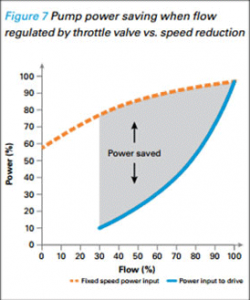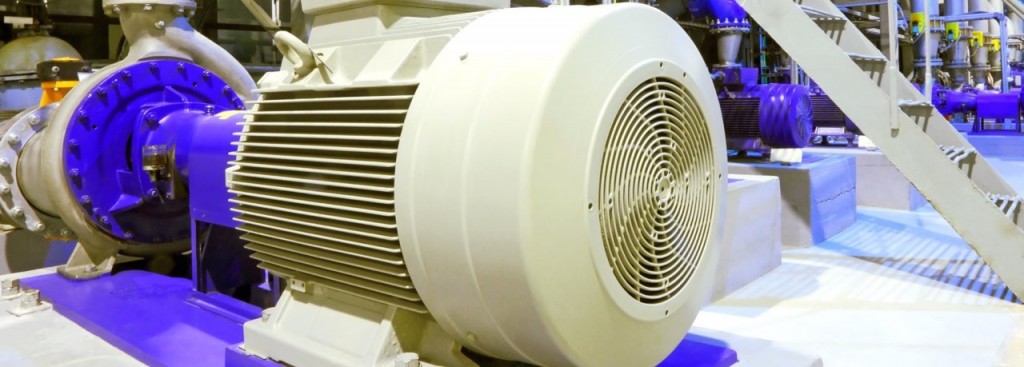What are Variable Speed Drives?
Variable Speed Drives (VSDs) control the speed of motors, fans and pumps – matching their speed and torque to the requirements of the application and in most cases delivering considerable savings in electricity used.
In technical terms, VSDs convert the incoming electrical supply of fixed frequency and voltage into a variable frequency and variable voltage output to the motor with a corresponding change in the motor speed and torque.
 The VSD manages the motor’s speed from zero rpm through to typically 100-120% of its full rated speed whilst up to 150% rated torque can be achieved at reduced speed.
The VSD manages the motor’s speed from zero rpm through to typically 100-120% of its full rated speed whilst up to 150% rated torque can be achieved at reduced speed.
Energy Savings with VSDs
Using a Variable Speed Drive to slow a fan or pump motor from 100% to 80% can save as much as 50% of the energy used
Every fan, pump or HVAC motor needs a VSD – dramatically reducing the electricity used to match the real need rather than running at full speed
The Carbon Trust recognises the benefits that Variable Speed Drives offer in the challenge to reduce electricity used, electricity costs and carbon emissions:
Source: Carbon Trust
Reducing the speed and torque of the motor to more closely match the environment and requirements of the process, rather than running at full speed all the time – reduces the amount of electricity being used. This reduction in speed relates directly to a reduction in power and energy.
Variable Speed Drives offer significant savings in electricity consumed and can be applied in a variety of applications. A detailed site survey will determine the right application and expected energy savings.
Sounds simple – and they are…simple and effective
To find out more about our technology get in touch.




